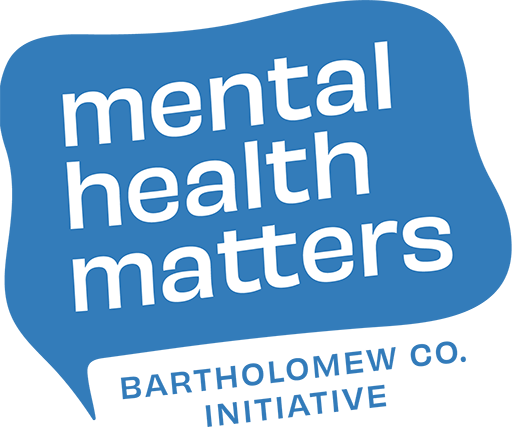I AM NOT SICK,
I DON’T NEED HELP!
By Xavier Amador, Ph.D.
Book Discussion Groups
January 1st - February 4th 2026

Who it’s for
FAMILY MEMBERS & SUPPORT NETWORKS
Parents, siblings, and adult children of individuals with mental illness
Spouses and partners navigating anosognosia in their relationships
Close friends and chosen family members providing support
Anyone in a caregiving role for someone who lacks illness awareness
MENTAL HEALTH & HEALTHCARE PROFESSIONALS
Mental health counselors, therapists, and social workers
Case managers and community support coordinators
Healthcare providers working with patients with mental illness
Peer support specialists and recovery coaches
COMMUNITY PARTNERS & FIRST RESPONDERS
Law enforcement officers and first responders
Faith leaders and pastoral care providers
Community advocates and nonprofit staff
Anyone seeking to better understand and support individuals experiencing anosognosia
ABOUT THE BOOK
I Am Not Sick, I Don’t Need Help by Xavier Amador, PhD
Too often, families and professionals face a heartbreaking reality: the person they care about refuses help, denies they are ill, and resists treatment—not out of stubbornness, but because of anosognosia, a neurological condition that prevents awareness of their own mental illness.
Without the right tools and understanding, well-meaning attempts to help can damage relationships, escalate crises, and leave everyone feeling frustrated and helpless. Traditional approaches—reasoning, pleading, or demanding treatment—often backfire, pushing the person further away from care. Through Dr. Amador's evidence-based LEAP method, participants learn how to:
Build trust and preserve relationships even when someone refuses to acknowledge their illness
Communicate effectively without confrontation, ultimatums, or power struggles
Recognize the signs of anosognosia and understand its neurological basis
Navigate the complex emotions of supporting someone who cannot see their own need for help
Connect with others facing similar challenges in a supportive, judgment-free environment
Develop practical strategies that balance respect for autonomy with concern for safety and wellbeing
ABOUT THE AUTHOR
Xavier Amador, PhD
Dr. Xavier Amador is an internationally renowned clinical psychologist, founder of the LEAP Institute, and CEO of the Henry Amador Center on Anosognosia. For over two decades, he served as Professor of Psychiatry and Clinical Psychology at Columbia University and Director of Psychology at the New York State Psychiatric Institute, where he co-chaired the Schizophrenia and Psychotic Disorders section of the DSM-IV-TR. His clinical research and published work on schizophrenia, bipolar disorder, and anosognosia have been translated into 30 languages and featured in major media outlets including CNN, CBS 60 Minutes, The New York Times, and PBS NOVA. As Director of the Center for Research Education and Practice at the National Alliance on Mental Illness (NAMI), he founded NAMI's Scientific Council and nationally launched the Family to Family and Peer to Peer programs. Drawing on thirty years of clinical experience and his own journey as a family caregiver to two close relatives with serious mental illness, Dr. Amador has dedicated his career to helping families and professionals communicate effectively with individuals who lack awareness of their condition.
Hear Dr. Amador’s story
While studying to become a clinical psychologist, Dr. Xavier Amador had a life-altering experience when his older brother was diagnosed with schizophrenia. In an effort to understand and help his brother, he and his colleagues at Colombia University uncovered a new way to approach patients previously thought to be in denial.
Study Group Goals
By participating in a book study group, you will be better equipped to:
Understand Anosognosia
Learn about the neurological condition that prevents illness awareness and how it affects treatment engagement.
Build Long-Term Support Strategies
Create sustainable approaches that balance safety, dignity, autonomy, and recovery for individuals with mental illness.
Gain LEAP Communication Techniques
Discover evidence-based strategies for building trust and engagement without confrontation or ultimatums.
Navigate Crisis Moments
Develop practical approaches for de-escalating conflicts and maintaining relationships during challenging interactions.
Whether you are a family member exhausted from years of crisis cycles, a professional seeking more effective intervention tools, or a community partner wanting to better serve individuals with serious mental illness, these discussion groups provide the knowledge, skills, and support to make a real difference.
Available Dates
*
Available Dates *
-
9-10:30am at City Hall in the Cal Brand Meeting Room
123 Washington St, Columbus, IN 47201
-
12pm-1:30pm at Centerstone
720 N Marr Rd, Columbus, IN 47201 in the Training Room 435
-
4:30pm - 6pm at Centerstone
720 N Marr Rd, Columbus, IN 47201 in the Training Room 435
-
9 - 10:30am at Lucabe Coffee Co.
310 4th St, Columbus, IN 47201
Coffee provided or you're welcome to purchase your favorite latte. Order online to have it ready when you arrive!
-
12 - 1:30pm
United Way Center
Main Conference Room
1531 13th St #1100, Columbus, IN 47201
-
11:00am - 12:30pm on Zoom*
Email Julie Orben at jorben@crh.org to register.*NOTE: For CIT Stakeholders
-
6:30pm - 7:30pm at the Bartholomew County Public Library
Conference Room 536
5th Street, Columbus, IN 47201
-
1:30-3:00pm at Mill Race Art Room
900 Lindsey St, Columbus, IN 47201
-
Noon - 1:30pm at Grace Lutheran Church
3201 Central Ave, Columbus, IN 47203
How to Prepare
Obtain a copy of the book from Viewpoint Bookstore or Amazon
Obtain a copy of the Book Guide from Viewpoint Bookstore, Bartholomew County Public Library, or Mental Health Matters
For questions: contact NAMI South Central Indiana via email





